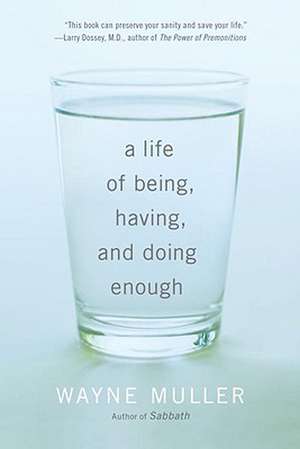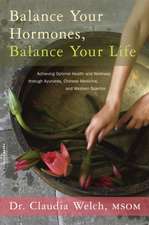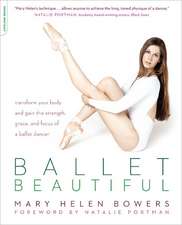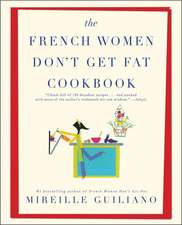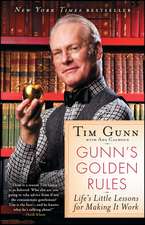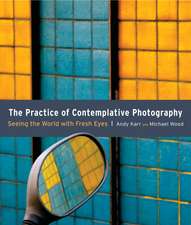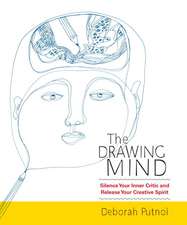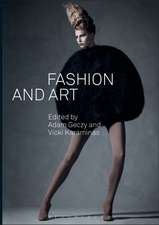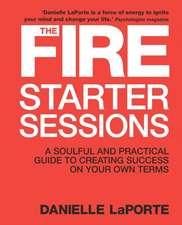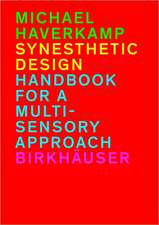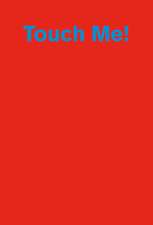A Life of Being, Having, and Doing Enough
Autor Wayne Mulleren Limba Engleză Paperback – 28 feb 2011
Nationally renowned author, therapist, and minister Wayne Muller offers healing for the perpetually stressed in A Life of Being, Having, and Doing Enough. By learning compassion and mercy for ourselves and by recognizing what is most profoundly true about who we are and what we need, we can gain the self-acceptance so that whatever we choose to do, in this moment, it is wholly enough.
Muller mixes the writings of great spiritual and political leaders with inspirational anecdotes from his own life, inviting us to derive more satisfaction from less and pull gratitude out of the ashes of grief. The answer to what he describes as "authentic happiness" lies not in seeing the glass as half full instead of half empty. In reality, he writes, the glass is always half full and half empty. The world is neither broken nor whole, but eternally engaged in rhythms between joy and sorrow. With Muller's guidance, we may find ourselves on the most courageous spiritual pilgrimage of our lives.
From the Hardcover edition.
Preț: 100.35 lei
Nou
Puncte Express: 151
Preț estimativ în valută:
19.20€ • 19.98$ • 15.85£
19.20€ • 19.98$ • 15.85£
Carte disponibilă
Livrare economică 24 martie-07 aprilie
Preluare comenzi: 021 569.72.76
Specificații
ISBN-13: 9780307591395
ISBN-10: 0307591395
Pagini: 256
Dimensiuni: 130 x 198 x 18 mm
Greutate: 0.2 kg
Editura: HARMONY
ISBN-10: 0307591395
Pagini: 256
Dimensiuni: 130 x 198 x 18 mm
Greutate: 0.2 kg
Editura: HARMONY
Recenzii
“This book can preserve your sanity and save your life.”
—LARRY DOSSEY, MD, AUTHOR OF The Power of Premonitions
“This is a book that I will give to all the people that I love, and one that I will read and reread as a reminder of how to live a more graceful and grateful life.”
—JOAN BORYSENKO, PHD, author of Minding the Body, Mending the Mind and Inner Peace for Busy People
“A beautiful, still, peaceful book about embracing your own magnificence and the wealth of everyday life.”
—JUDITH ORLOFF, MD, New York Times bestselling author of Emotional Freedom
“A Life of Being, Having, and Doing Enough is a gentle, beautiful book, one that realigns the heart and mind. This is a book that strikes a deep chord of truth.”
—SHARON SALZBERG, author of Lovingkindness: The Revolutionary Art of Happiness
"As a busy CEO, a public figure, a volunteer, and a family man with two young children, Wayne’s words warmly washed over me as waves on a tropical beach. This book will do the same for you - I guarantee it!"
—GEORGE ZIMMER, Founder and CEO, Men’s Wearhouse
"The timing for this rich book could not be more perfect. Wayne Muller has written a thought provoking guide to the interior life that beautifully articulates why our soul craves silence and contemplation. This is a masterful accomplishment."
—CAROLINE MYSS, author of Anatomy of the Spirit and Defy Gravity
"This is a soul-sized book for sure. We are so busy pursuing too many goals and straining ourselves to death in the process. We are ‘catching up’ forever, doing-doing-doing all the time, stressed out and pushing ourselves to achieve and acquire in order to fill the emptiness in our souls. Wayne Muller counsels us to slow down, to accept ourselves and our limits, to enjoy just being the creatures we are in this universe. He teaches us to say ‘enough’ in a raging world of ceaseless activity, of self-imposed 24/7 tiredness. Reading this book is healthy - it will quiet the restless heart and encourage a thankful simplicity that brings peace to the soul."
—STEPHEN POST, author of Why Good Things Happen to Good People
“A Life of Being, Having, and Doing Enough is a compelling, thought-provoking meditation on what truly matters in life. True to form, Wayne Muller shares life-changing advice and inspiration.”
—DANIEL GOLEMAN author of Emotional Intelligence
"In a world seduced by its own unlimited potential, rather than feeling omnipotent we feel powerless and overwhelmed by impossible responsibilities. This is because we have forgotten what 'enough' feels like, says minister, therapist, and philanthropist Muller. He urges readers to step back from their inner pressures and from the externalities of culture, community, and work to reclaim an unshakable trust in their own deep inner sufficiency.
—Publishers Weekly
“This book is a timely and invaluable resource to help us remember what is truly important and meaningful in our lives. It provides the reader a place of solace, sanctuary, reflection, and realignment toward an inherent Way of Being—in the midst of life’s busy-ness and fast pace!”
—ANGELES ARRIEN, PHD, author of The Second Half of Life: Opening the Eight Gates of Wisdom
“A Life of Being, Having, and Doing Enough is an antidote to ‘more is better’ and the madness of multitasking. It offers a respite from the endless cycle of seeking that perpetuates our suffering. This book is a great reminder of the joy of keeping it simple, of the abundance present in this moment, and that even these few words are enough.”
—FRANK OSTASESKI, founder of the Metta Institute and the Zen Hospice Project
“Once again Wayne Muller has taken compassion-in-action to a new level through his marvelous and timely new book. Wayne highlights one of the key distinctions of our time: to recognize that we already are, have, and do enough just as we are. By beautifully illustrating how ‘enough’ looks and feels, he offers the reader a tremendous gift. This is the fundamental context of sufficiency—and of living a happy, fulfilled life of meaning. It’s also the basis for sharing and collaboration, essential elements in turning the tide at this pivotal time in human history.”
—LYNNE TWIST, President, Soul of Money Institute and co-founder, The Pachamama Alliance
“This wise and compassionate book helps us recognize and receive what we already have and offers us a place of refuge, renewal, and peace. A must-read for anyone who has ever felt ‘It's never enough.’”
—RACHEL NAOMI REMEN, MD, author of Kitchen Table Wisdom and My Grandfather’s Blessings
From the Hardcover edition.
—LARRY DOSSEY, MD, AUTHOR OF The Power of Premonitions
“This is a book that I will give to all the people that I love, and one that I will read and reread as a reminder of how to live a more graceful and grateful life.”
—JOAN BORYSENKO, PHD, author of Minding the Body, Mending the Mind and Inner Peace for Busy People
“A beautiful, still, peaceful book about embracing your own magnificence and the wealth of everyday life.”
—JUDITH ORLOFF, MD, New York Times bestselling author of Emotional Freedom
“A Life of Being, Having, and Doing Enough is a gentle, beautiful book, one that realigns the heart and mind. This is a book that strikes a deep chord of truth.”
—SHARON SALZBERG, author of Lovingkindness: The Revolutionary Art of Happiness
"As a busy CEO, a public figure, a volunteer, and a family man with two young children, Wayne’s words warmly washed over me as waves on a tropical beach. This book will do the same for you - I guarantee it!"
—GEORGE ZIMMER, Founder and CEO, Men’s Wearhouse
"The timing for this rich book could not be more perfect. Wayne Muller has written a thought provoking guide to the interior life that beautifully articulates why our soul craves silence and contemplation. This is a masterful accomplishment."
—CAROLINE MYSS, author of Anatomy of the Spirit and Defy Gravity
"This is a soul-sized book for sure. We are so busy pursuing too many goals and straining ourselves to death in the process. We are ‘catching up’ forever, doing-doing-doing all the time, stressed out and pushing ourselves to achieve and acquire in order to fill the emptiness in our souls. Wayne Muller counsels us to slow down, to accept ourselves and our limits, to enjoy just being the creatures we are in this universe. He teaches us to say ‘enough’ in a raging world of ceaseless activity, of self-imposed 24/7 tiredness. Reading this book is healthy - it will quiet the restless heart and encourage a thankful simplicity that brings peace to the soul."
—STEPHEN POST, author of Why Good Things Happen to Good People
“A Life of Being, Having, and Doing Enough is a compelling, thought-provoking meditation on what truly matters in life. True to form, Wayne Muller shares life-changing advice and inspiration.”
—DANIEL GOLEMAN author of Emotional Intelligence
"In a world seduced by its own unlimited potential, rather than feeling omnipotent we feel powerless and overwhelmed by impossible responsibilities. This is because we have forgotten what 'enough' feels like, says minister, therapist, and philanthropist Muller. He urges readers to step back from their inner pressures and from the externalities of culture, community, and work to reclaim an unshakable trust in their own deep inner sufficiency.
—Publishers Weekly
“This book is a timely and invaluable resource to help us remember what is truly important and meaningful in our lives. It provides the reader a place of solace, sanctuary, reflection, and realignment toward an inherent Way of Being—in the midst of life’s busy-ness and fast pace!”
—ANGELES ARRIEN, PHD, author of The Second Half of Life: Opening the Eight Gates of Wisdom
“A Life of Being, Having, and Doing Enough is an antidote to ‘more is better’ and the madness of multitasking. It offers a respite from the endless cycle of seeking that perpetuates our suffering. This book is a great reminder of the joy of keeping it simple, of the abundance present in this moment, and that even these few words are enough.”
—FRANK OSTASESKI, founder of the Metta Institute and the Zen Hospice Project
“Once again Wayne Muller has taken compassion-in-action to a new level through his marvelous and timely new book. Wayne highlights one of the key distinctions of our time: to recognize that we already are, have, and do enough just as we are. By beautifully illustrating how ‘enough’ looks and feels, he offers the reader a tremendous gift. This is the fundamental context of sufficiency—and of living a happy, fulfilled life of meaning. It’s also the basis for sharing and collaboration, essential elements in turning the tide at this pivotal time in human history.”
—LYNNE TWIST, President, Soul of Money Institute and co-founder, The Pachamama Alliance
“This wise and compassionate book helps us recognize and receive what we already have and offers us a place of refuge, renewal, and peace. A must-read for anyone who has ever felt ‘It's never enough.’”
—RACHEL NAOMI REMEN, MD, author of Kitchen Table Wisdom and My Grandfather’s Blessings
From the Hardcover edition.
Notă biografică
WAYNE MULLER is a Santa Feߝbased therapist, public speaker, minister, and best-selling author. His previous books include Legacy of the Heart; How Then, Shall We Live?; Sabbath; and Learning to Pray. He is the founder of Bread for the Journey, a nonprofit organization that supports community organizing and neighborhood philanthropy.
From the Hardcover edition.
From the Hardcover edition.
Extras
A Life of Enough
We have forgotten what enough feels like.
We live in a world seduced by its own unlimited potential. We are driven by a presumptive grandiosity that any economic, social, or political limitations can seemingly be over come with more speed or technology. But for us, as human beings, our limitations remain constant, eternal, fully intact. Rather than feeling large and omnipotent, our own very limited, human days are likely to feel more cramped, overgrown, and choked by impossible responsibilities. At worst, we feel powerless; no matter how strong our hearts, or how good or kind our intentions, each day the finish line seems farther away, the bar keeps rising, nothing is ever finished, nothing ever good enough. So we work and add and never stop, never back away, never feel complete, and we despair of ever finding comfort, relief, or sanctuary.
So many good-hearted people I know are exhausted. For the past fifteen years, I have spoken with many rich, diverse groups of loving, caring people. Wherever I go, I find myself so deeply saddened by how the world is placing increasingly impossible pressures and responsibilities on ordinary people who are simply doing what they can to help make their families, their communities, or their world somehow better, more beautiful, more whole.
I am privileged to meet with groups both large and small. Whether they are parents or teachers, business people or community volunteers, doctors, clergy, nurses, or civil servants, they each in their own way feel victim to a relentless assault of increasing expectations, activities, demands, and accomplishments that overwhelms any spaciousness or ease in their daily lives.
They confess they feel overwhelmed, and what is required of them transcends any realistic human scale or possibility. However sweet or nourishing the fruits of their work may be for themselves or others, nothing they do ever feels like enough. Even worse, the sheer pace and volume of their lives seems to corrode whatever joy, wonder, nourishment, or delight they may find in simply doing their best. It has become so much more difficult to make peace with any job well done or any day well spent.
What has so changed us? What has so radically transformed our world that we so easily surrender our hope of any reliable, trustworthy permission to pause, gently put aside our day’s work, take our nourishment, or find peace or sufficiency in enough for today? What deep and poignant confusion has so infected our hearts that we feel incapable of remembering this most essential, human offering: to do what we can and have mercy?
What if we have been sent spinning by the loss of some deeply elemental knowing, some reliable inner compass, some way of sensing the moment of inherent ufficiency in things, forgotten what enough of anything feels like— enough work, enough success, enough love, enough security, enough wealth, enough care for our children, enough generosity, enough clothing, shelter, enough daily bread?
In the Genesis story, the Creator works for six days, shaping the green, fluid beauty of the earth with life everywhere: birds and fish and beasts of the fields, verdant trees, flowers, fragrances wafting gently on breezes that circle this fresh, fertile orb of life. On the seventh day, the Creator rests. For now, this is enough. In the Hebrew Bible, the word for this rest can literally be read, “And God exhaled.”
God exhaled. When do we exhale? Perhaps, like God, we exhale when we feel certain that our good and necessary work is done. What then is our work on the earth? In a world gone mad with speed, potential, and choice, we continually overestimate what we can do, build, fix, care for, or make happen in one day. We overload our expectations on ourselves and others, inflate our real and imaginary responsibilities, until our fierce and tender human hearts finally collapse under the relentless pressure of impossible demands.
No living organism can sustain this kind of violent overwork before it breaks, or dies. In addition to numerous, well-documented benefits of a more gently restful life on our overall health — increased longevity, reduction in stress, a stronger immune system, increased happiness and well-being, among many others— there are religious precepts and commandments, like the Sabbath commandment in the Hebrew Bible, that prescribe days of rest, prayer, nourishment and renewal as essential to a life well lived. Why, then, are we so reluctant to ever stop, be still, or allow our work to feel sufficient for this day?
In spite of any compelling physical or spiritual benefits, we fear we have no authentic, trustworthy permission to stop. If we do stop to rest without some very good reason or some verifiable catastrophe, we feel guilty, we worry about getting in trouble, we feel we are just lazy, not carrying our weight, not a team player, or will be left behind. If we just put our nose to the grindstone, give it our all, do our best, give 110 percent, really put our mind to it, never give up, and work more efficiently, then we can, and should, be able to get absolutely everything on our desk, on our to- do list, on our calendars, finished, on deadline, without any mistakes, perfectly, every time.
Then, we can rest.
But this ridiculously impossible moment never arrives; and we cannot take that first step back. So we keep going. And going. Without permission from our culture, workplace, community, or even our own inner, grinding work ethic, how can we know it is time to stop— for now, for today— and know that what we have done, and who we have been, is absolutely enough? It is time to put it down, let it be, go home, and call it a day.
How do we start on this path, holding who we are and what we have with peace and contentment? How do we reclaim a life of deep sufficiency?
We begin within ourselves. The world around us will be unrelenting, saturating us with a multitude of offers of peace, contentment, and well- being through this or that purchase, event, affiliation, or experience. But our most reliable experience of enough begins within our own visceral experience; it is a sufficiency tasted first through intimate conversation between our own fully incarnated spirit and flesh. We feel this sacramental sufficiency most reliably in the body — in the heart, chest, and belly.
In other words, enough is ultimately an inside job. However passionately we may argue or define or discern with any precision what is enough of anything, it is in the undeniable yes of our body — the unmistakable balance of spirit and life, in agreeable harmony with the world around us — that we feel either the cramping fear of scarcity, the bloated saturation of overabundance, or the gentle, effortless release of easy sufficiency.
Enough, then, emerges within our body. As with all living things, it is always moving and changing. Whenever we try to achieve lasting, constant, predictable sufficiency in any area of our lives, we are swiftly disappointed and discouraged. The flaw inherent in capturing, predicting, or even planning for enough is that it is never a fixed quantity or stable measure or consistent state of being.
There is no guarantee we will ever find enough of anything in the same place, or in the same way, twice. As we grow and change, our experience of sufficiency grows and changes with us. Our needs and wants at fifteen years old are nearly unrecognizable to those we experience in our fifties. Our sense of sufficiency when born in a wealthy nation bears little resemblance to the forcibly constricted sufficiency of a poor one. Because our lives are ever-shifting, dynamic relationships between our mercurial wants and needs for company or solitude, busyness or stillness, giving or receiving, scarcity or abundance, love or fear, each moment we are engaged in impassioned conversation between whatever we seek and whatever we are given.
Enough is not only a relationship; it is played out in this moment, and the next, and the next. We can only experience a sense of enough when we are fully present and awake in this moment. The only moment we can feel and know with any fervent clarity or certainty is the moment we experience right now. The farther we get from this moment— the more we project outward into next week, next month, next year — the less and less we can truly know about who we will become or how the world may have completely reshaped itself around us.
What, then, can we do? We begin by listening, paying attention, gradually uncovering our own clarity and wisdom. If we are to learn to trust that inner knowing and rely upon the authority of our deepest heart’s intuition, this is where we must begin. For the voices of the world are loud, they are legion, and they are growing exponentially. These outer voices each have their most decidedly necessary prescription for our lives. Each screams louder than the next, insisting we listen to what they say, what we should need, want, buy, and do, to have a life of enough.
But when we can name with unwavering certainty the truth of who we are, what we need, and what we know to be true about ourselves in this moment, the closer we come to a more deeply accurate path to a life made of days, a life of perfect sufficiency. Enough, then, is a visceral experience, forged in relationship, most reliably born in this moment when we are passionately present and awake.
Human beings have an innate capacity to discern what is necessary or true; we have our own authentic, most reliable inner compass, a visceral knowing, an unmistakable sense in our hearts and bodies that indicates what is the next right thing o do, to make, to become. This inner wholeness has been given many names— our spirit, our true nature, our spark of divinity, our subconscious, our intuition, our inner light. What lives and breathes in us is a knowing of what cannot be easily seen by appearance or named by language. This compass, this still, small voice, this absolutely trustworthy capacity to listen for what is right and true — it is from this place that we come to know, without doubt or hesitation, an undeniable certainty that who we are, and what we do, in this moment, embedded in a gentle peace beyond understanding, is wholly sufficient, simply and completely enough.
If we began our journey with this fierce affirmation of our own intrinsic wisdom, how, then, could we have so easily lost our way? And how do we learn to assert the authority of our own clarity and reclaim an unshakable trust in our own wholeness and deep inner sufficiency?
From the Hardcover edition.
We have forgotten what enough feels like.
We live in a world seduced by its own unlimited potential. We are driven by a presumptive grandiosity that any economic, social, or political limitations can seemingly be over come with more speed or technology. But for us, as human beings, our limitations remain constant, eternal, fully intact. Rather than feeling large and omnipotent, our own very limited, human days are likely to feel more cramped, overgrown, and choked by impossible responsibilities. At worst, we feel powerless; no matter how strong our hearts, or how good or kind our intentions, each day the finish line seems farther away, the bar keeps rising, nothing is ever finished, nothing ever good enough. So we work and add and never stop, never back away, never feel complete, and we despair of ever finding comfort, relief, or sanctuary.
So many good-hearted people I know are exhausted. For the past fifteen years, I have spoken with many rich, diverse groups of loving, caring people. Wherever I go, I find myself so deeply saddened by how the world is placing increasingly impossible pressures and responsibilities on ordinary people who are simply doing what they can to help make their families, their communities, or their world somehow better, more beautiful, more whole.
I am privileged to meet with groups both large and small. Whether they are parents or teachers, business people or community volunteers, doctors, clergy, nurses, or civil servants, they each in their own way feel victim to a relentless assault of increasing expectations, activities, demands, and accomplishments that overwhelms any spaciousness or ease in their daily lives.
They confess they feel overwhelmed, and what is required of them transcends any realistic human scale or possibility. However sweet or nourishing the fruits of their work may be for themselves or others, nothing they do ever feels like enough. Even worse, the sheer pace and volume of their lives seems to corrode whatever joy, wonder, nourishment, or delight they may find in simply doing their best. It has become so much more difficult to make peace with any job well done or any day well spent.
What has so changed us? What has so radically transformed our world that we so easily surrender our hope of any reliable, trustworthy permission to pause, gently put aside our day’s work, take our nourishment, or find peace or sufficiency in enough for today? What deep and poignant confusion has so infected our hearts that we feel incapable of remembering this most essential, human offering: to do what we can and have mercy?
What if we have been sent spinning by the loss of some deeply elemental knowing, some reliable inner compass, some way of sensing the moment of inherent ufficiency in things, forgotten what enough of anything feels like— enough work, enough success, enough love, enough security, enough wealth, enough care for our children, enough generosity, enough clothing, shelter, enough daily bread?
In the Genesis story, the Creator works for six days, shaping the green, fluid beauty of the earth with life everywhere: birds and fish and beasts of the fields, verdant trees, flowers, fragrances wafting gently on breezes that circle this fresh, fertile orb of life. On the seventh day, the Creator rests. For now, this is enough. In the Hebrew Bible, the word for this rest can literally be read, “And God exhaled.”
God exhaled. When do we exhale? Perhaps, like God, we exhale when we feel certain that our good and necessary work is done. What then is our work on the earth? In a world gone mad with speed, potential, and choice, we continually overestimate what we can do, build, fix, care for, or make happen in one day. We overload our expectations on ourselves and others, inflate our real and imaginary responsibilities, until our fierce and tender human hearts finally collapse under the relentless pressure of impossible demands.
No living organism can sustain this kind of violent overwork before it breaks, or dies. In addition to numerous, well-documented benefits of a more gently restful life on our overall health — increased longevity, reduction in stress, a stronger immune system, increased happiness and well-being, among many others— there are religious precepts and commandments, like the Sabbath commandment in the Hebrew Bible, that prescribe days of rest, prayer, nourishment and renewal as essential to a life well lived. Why, then, are we so reluctant to ever stop, be still, or allow our work to feel sufficient for this day?
In spite of any compelling physical or spiritual benefits, we fear we have no authentic, trustworthy permission to stop. If we do stop to rest without some very good reason or some verifiable catastrophe, we feel guilty, we worry about getting in trouble, we feel we are just lazy, not carrying our weight, not a team player, or will be left behind. If we just put our nose to the grindstone, give it our all, do our best, give 110 percent, really put our mind to it, never give up, and work more efficiently, then we can, and should, be able to get absolutely everything on our desk, on our to- do list, on our calendars, finished, on deadline, without any mistakes, perfectly, every time.
Then, we can rest.
But this ridiculously impossible moment never arrives; and we cannot take that first step back. So we keep going. And going. Without permission from our culture, workplace, community, or even our own inner, grinding work ethic, how can we know it is time to stop— for now, for today— and know that what we have done, and who we have been, is absolutely enough? It is time to put it down, let it be, go home, and call it a day.
How do we start on this path, holding who we are and what we have with peace and contentment? How do we reclaim a life of deep sufficiency?
We begin within ourselves. The world around us will be unrelenting, saturating us with a multitude of offers of peace, contentment, and well- being through this or that purchase, event, affiliation, or experience. But our most reliable experience of enough begins within our own visceral experience; it is a sufficiency tasted first through intimate conversation between our own fully incarnated spirit and flesh. We feel this sacramental sufficiency most reliably in the body — in the heart, chest, and belly.
In other words, enough is ultimately an inside job. However passionately we may argue or define or discern with any precision what is enough of anything, it is in the undeniable yes of our body — the unmistakable balance of spirit and life, in agreeable harmony with the world around us — that we feel either the cramping fear of scarcity, the bloated saturation of overabundance, or the gentle, effortless release of easy sufficiency.
Enough, then, emerges within our body. As with all living things, it is always moving and changing. Whenever we try to achieve lasting, constant, predictable sufficiency in any area of our lives, we are swiftly disappointed and discouraged. The flaw inherent in capturing, predicting, or even planning for enough is that it is never a fixed quantity or stable measure or consistent state of being.
There is no guarantee we will ever find enough of anything in the same place, or in the same way, twice. As we grow and change, our experience of sufficiency grows and changes with us. Our needs and wants at fifteen years old are nearly unrecognizable to those we experience in our fifties. Our sense of sufficiency when born in a wealthy nation bears little resemblance to the forcibly constricted sufficiency of a poor one. Because our lives are ever-shifting, dynamic relationships between our mercurial wants and needs for company or solitude, busyness or stillness, giving or receiving, scarcity or abundance, love or fear, each moment we are engaged in impassioned conversation between whatever we seek and whatever we are given.
Enough is not only a relationship; it is played out in this moment, and the next, and the next. We can only experience a sense of enough when we are fully present and awake in this moment. The only moment we can feel and know with any fervent clarity or certainty is the moment we experience right now. The farther we get from this moment— the more we project outward into next week, next month, next year — the less and less we can truly know about who we will become or how the world may have completely reshaped itself around us.
What, then, can we do? We begin by listening, paying attention, gradually uncovering our own clarity and wisdom. If we are to learn to trust that inner knowing and rely upon the authority of our deepest heart’s intuition, this is where we must begin. For the voices of the world are loud, they are legion, and they are growing exponentially. These outer voices each have their most decidedly necessary prescription for our lives. Each screams louder than the next, insisting we listen to what they say, what we should need, want, buy, and do, to have a life of enough.
But when we can name with unwavering certainty the truth of who we are, what we need, and what we know to be true about ourselves in this moment, the closer we come to a more deeply accurate path to a life made of days, a life of perfect sufficiency. Enough, then, is a visceral experience, forged in relationship, most reliably born in this moment when we are passionately present and awake.
Human beings have an innate capacity to discern what is necessary or true; we have our own authentic, most reliable inner compass, a visceral knowing, an unmistakable sense in our hearts and bodies that indicates what is the next right thing o do, to make, to become. This inner wholeness has been given many names— our spirit, our true nature, our spark of divinity, our subconscious, our intuition, our inner light. What lives and breathes in us is a knowing of what cannot be easily seen by appearance or named by language. This compass, this still, small voice, this absolutely trustworthy capacity to listen for what is right and true — it is from this place that we come to know, without doubt or hesitation, an undeniable certainty that who we are, and what we do, in this moment, embedded in a gentle peace beyond understanding, is wholly sufficient, simply and completely enough.
If we began our journey with this fierce affirmation of our own intrinsic wisdom, how, then, could we have so easily lost our way? And how do we learn to assert the authority of our own clarity and reclaim an unshakable trust in our own wholeness and deep inner sufficiency?
From the Hardcover edition.
